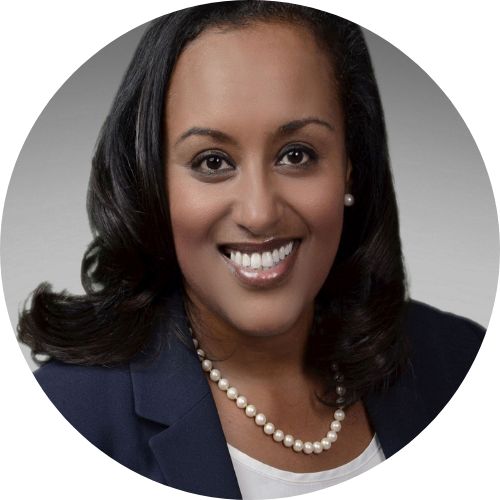
By Lulu Rufael, Chief Human Resources Officer at Atlas
The Covid-19 pandemic fundamentally changed how employers and employees alike viewed work. We shifted from the perspective that working from home was a privilege to it becoming an intrinsic part of people’s working life.
For businesses, it has resulted in another significant development: expanded opportunities to hire and retain talent internationally. However, with new access to borderless talent comes increasing concerns from businesses. How do we address company culture when we are hiring and growing our business with employees all over the globe?
Why company culture is important?
Culture can be hard to define as it is unique to each organization. Company culture should ensure impactful management, communication, work environment, and workplace practices. It inherently plays a crucial role in workplace dynamics and should be a priority for business leaders. Research has shown that culture can have a direct impact on employee retention, innovation, and customer service. A recent whitepaper by a specialist recruitment agency notes that 85% of employees believe they perform better when working for an organization that is a good cultural fit.
Rapid global expansion often has daunting challenges that may affect company culture, strategy, and overall business efficiency. Some of the concerns include managing a global team, overcoming language and cultural barriers, and dealing with foreign politics and policy. So how can we address these issues?
Touchpoint opportunities
Research indicates that our ability to connect to other people on a meaningful level is hampered when we are not physically present to bond verbally and non-verbally through our actions. Businesses can overcome this widening gap by ensuring they create touchpoint opportunities between offices and employees. Organizations can create opportunities to help foster connections between teams with activities that require interaction, innovation, and collaboration. This could mean having a day where employees in similar time zones meet through a videoconferencing platform using technology collaboration tools that allow them to see each other while they interact. It brings a more personal experience to the employees.
Consistent Communication
Global companies need to make it a priority to reach out to employees regularly to show they are valued by having regular check-ins while also making them feel like active participants in company culture. Recent research shows that 70% of employees wanted more daily or weekly check-ins and were more likely to rate their satisfaction with their managers higher with this enhanced communication.
Diverse hiring
Another key recommendation for businesses has inclusive hiring practices that contribute to attracting and retaining top global talent. A diverse workforce can help create an environment that fosters different perspectives and experiences. Inclusive hiring is particularly valuable for an international team as it ensures that new global hires feel that they can express their diverse views. Research shows that diverse companies are more likely to outperform peers financially, as much as 36% in some cases.
In-country experts
Benefits play an important role in maintaining company culture as they contribute to the perception of social recognition of an employee’s efforts. Offering consistent benefits across countries, regions, and offices can be difficult to manage globally. An international workforce means that a company could be dealing with varying benefit and compliance expectations which can cause discrepancies between employees.
One solution to the benefits challenge is partnering with an Employer of Record (EOR) to leverage the expertise of HR professionals in specific countries as they act as an extension of your HR team. In countries where you do not have a presence, our in-country experts take the lead on multiple HR issues that can vary due to different compliance measures and regulations (how employees are paid, benefits, and annual leave). An effective EOR will also seek to understand how your company operates and its culture and offer standardized benefits aligned to your company and with local legislation. Partnering with an EOR like Atlas means that employees abroad have a knowledgeable partner to go to who understands the regional difference and can also set cultural expectations.
Cultivating a company culture is more challenging with a global workforce, but by incorporating recommendations of creating touch point opportunities, having consistent communication, fostering a diverse workforce, and partnering with an EOR, leaders can confidently tap into the global talent pool and scale their businesses while maintaining the culture and values central to the company.
About the author
 Lulu Rufael is Chief Human Resources Officer at Atlas HXM. She is a passionate, inspiring leader and organizational change agent, driving innovation through people and technology. With results backed by 25+ years of global leadership and execution in Human Resources, Technology, and Program Management roles, Lulu leverages her knowledge of people, data, and technology to creatively solve strategic business challenges and create new pathways. Lulu is a six sigma blackbelt and holds a bachelor’s degree from the University of Maryland. She lives in Atlanta, Georgia in the US.
Lulu Rufael is Chief Human Resources Officer at Atlas HXM. She is a passionate, inspiring leader and organizational change agent, driving innovation through people and technology. With results backed by 25+ years of global leadership and execution in Human Resources, Technology, and Program Management roles, Lulu leverages her knowledge of people, data, and technology to creatively solve strategic business challenges and create new pathways. Lulu is a six sigma blackbelt and holds a bachelor’s degree from the University of Maryland. She lives in Atlanta, Georgia in the US.








